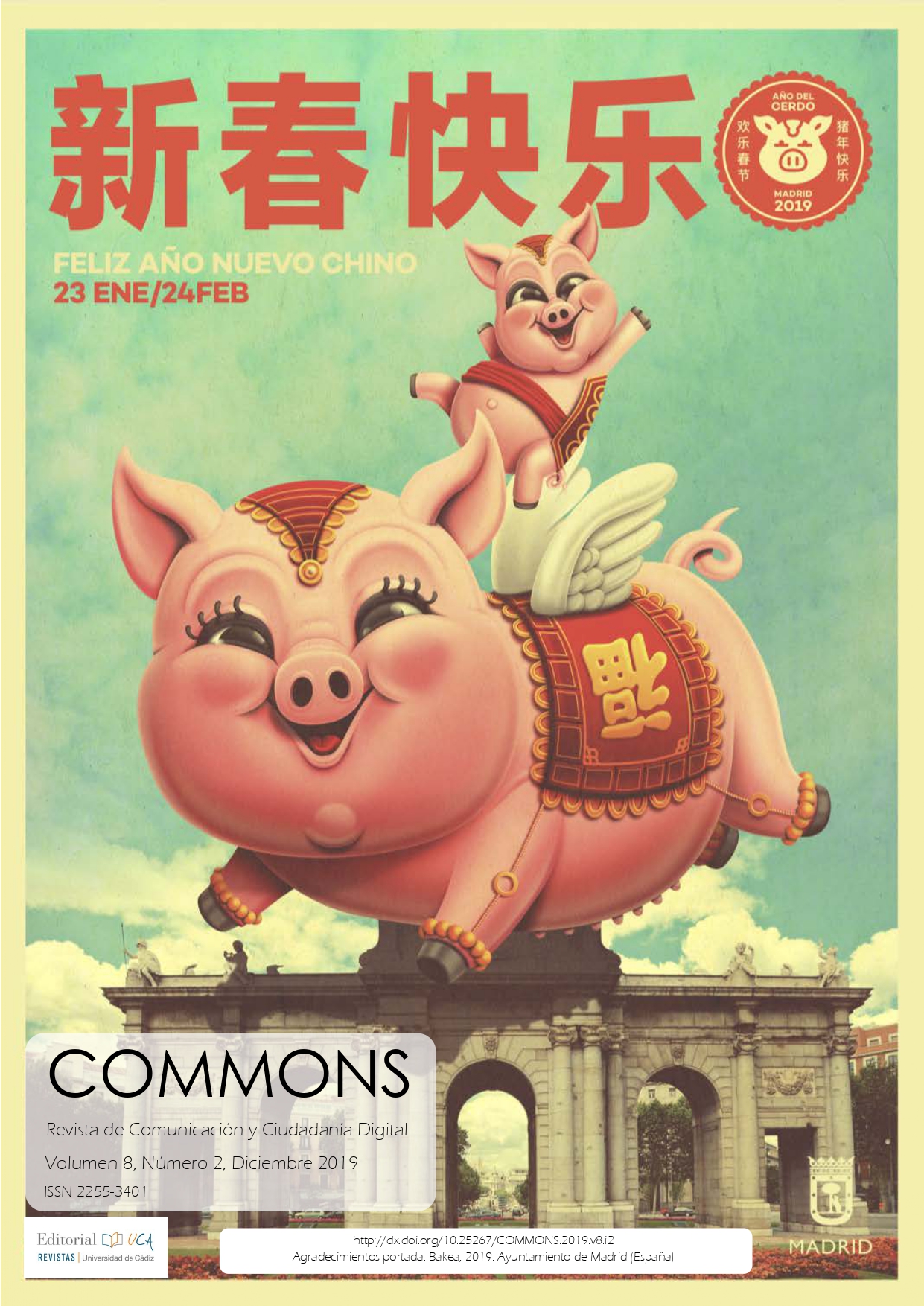Revistas contraculturales argentinas en dictadura y transición: debates alrededor del exilio / Argentine Counterculture Magazines during Dictatorship and Transition: Debates about Exile

Info
Abstract
During the last Argentine dictatorship (1976-1983), a group of cultural magazines challenged the restrictions imposed by hegemonic military power through their proposal of politic and cultural intervention, their place in the symbolic market and the recovery of traditions that contended against the so-called official culture, among other things. Consequently, they came to be designated as countercultural or underground magazines. Since 1978 and during the so-called Argentine transition, those magazines engaged in a dispute with those manifestations that, from the exile, equated their cultural production of those people who remained with the inaction, the stillness, and the silent. Between the exile and those who remained in the country, a solidarity network was established based on the suffering and denunciation of the military regime's censorship, prohibition, and persecution. But also a series of tensions between “inside” and “outside”, which we intend to revisit in this article, was established.
Keywords
Downloads
How to Cite
License
Authors who have published with this journal accept the following terms:
- Authors shall retain their copyright and guarantee the journal the right of first publication of their work, which shall simultaneously be subject to the Creative Commons 3.0 Recognition License, which allows third parties to share the work as long as its author and first publication are indicated in this journal.
- Authors may adopt other non-exclusive licensing agreements for the distribution of the published version of the work (e.g., depositing it in an institutional telematic archive or publishing it in a monographic volume) provided that the initial publication in this journal is indicated.
- Authors are permitted and encouraged to disseminate their work via the Internet (e.g., in institutional telematic archives or on their website) before and during the submission process, which may lead to interesting exchanges and increased citations of the published work. (See The Effect of Open Access).
References
BROCATO, C. (1983). La intelectualidad y la crítica del balazo. Praxis, (1), 57- 58.
BROCATO, C. (1986). El exilio es el nuestro. Los mitos y los héroes argentinos. ¿Una sociedad que no se sincera? Buenos Aires: Sudamericana Planeta.
BROCATO, C. (1993). Cultura y mitos argentinos. Cuadernos Hispanoamericanos, (517-519), 465-469.
CALVEIRO, P. (1998). Poder y desaparición. Buenos Aires: Colihue.
CANELO, P. (2008). El proceso en su laberinto. La interna militar de Videla a Bignone. Buenos Aires: Prometeo.
CANELO, P. (2016). La política secreta de la última dictadura. Buenos Aires: Edhasa.
CORTÁZAR, J. (1978). América Latina: exilio y literatura. Eco, (205), 59-66.
CORTÁZAR, J. & HEKER, L. (1981). Exilio y Literatura (II) Polémica. El Ornitorrinco, (10), 3-7.
CRISTIÁ, M. (2017). Imaginación y resistencia antidictatorial en los años ochenta. La acción por América Latina de la Asociación Internacional de Defensa de Artistas Víctimas de la Represión en el Mundo (AIDA). Revista Izquierdas, (36), 156-180. Recuperado de http://www.izquierdas.cl/images/pdf/2017/ n36/art7.pdf
DE DIEGO, J. L. (2007). ¿Quién de nosotros escribirá el Facundo? Intelectuales y escritores en Argentina (1970-1986). La Plata: Ediciones Al Margen.
DELEUZE, G. & GUATTARI, F. (1977). Rizoma (Introducción). Valencia: Pre- Textos.
FERNÁNDEZ MORENO, C. (1981a). Las ilusiones del enamorado. Les Temps Modernes, (420-21), 29-30.
FERNÁNDEZ MORENO, C. (1981b). Los que se fueron, los que quedaron. Les Temps Modernes, (420-21), 55-56.
FRANCO, M. (2008). El exilio. Argentinos en Francia durante la dictadura. Buenos Aires: Siglo XXI.
FRANCO, M. (2018). El final del silencio. Dictadura, sociedad y derechos humanos en la transición (Argentina, 1979-1983). Buenos Aires: Fondo de Cultura Económica.
GRAZIANO, M. (1980). Para una definición alternativa de la comunicación. Revista ININCO, (1), 71-74.
GRÜNER, E. (1983). La Argentina como pentimento. Sitio, (3), 71-83.
GUSMÁN, L. (1983). Del destierro al exilio: versiones e inversiones. Sitio, (3),61-70.
HEKER, L. (1980). Exilio y literatura: Polémica con Cortázar. El Ornitorrinco,(7), 3-5.
JINKIS, J. (1983). La Argentina, tango-canción. Para desmontar un discurso. Sitio, (3), 39-48.
LESGART, C. (2002). Ciencia política y producción de la idea de transición a la democracia. La reorganización de un campo del conocimiento. En A. FERNÁNDEZ (Comp.). La ciencia política en la Argentina. Dos siglos de historia. Buenos Aires: Biebel.
MARCUS, C. (2002). Las revistas culturales subterráneas en la dictadura. Ponencia llevada a cabo en las II Jornadas de Historia de las Izquierdas. CeDInCI, Buenos Aires.
PATIÑO, R. (2006). Revistas literarias y culturales argentinas de los 80. Usinas para pensar una época. Ínsula, Revista de letras y ciencias humanas, (715-716), 2-5.
RISLER, J. (2019). La Acción Psicológica. Dictadura, inteligencia y gobierno de las emociones. Buenos Aires: Tinta Limón.
RIVERA, J. (1995). El periodismo cultural. Buenos Aires: Paidós.
SIMPSON GRINBERG, M. (1986). Comunicación alternativa: tendencias de la investigación en América Latina. En M. SIMPSON GRINBERG (Comp.), Comunicación alternativa y cambio social (pp. 23-55). México: Premia editora.
VIÑAS, D. (1981). Los militares argentinos de 1930 a 1980. Les Temps Modernes, (420-21), 44-45.
VIÑAS, D. & FERNÁNDEZ MORENO, C. (2011). Revista Tiempos Modernos. Argentina: entre populismo y militarismo. Buenos Aires: Biblioteca Nacional.
WILLIAMS, R. (1988). Marxismo y Literatura. Barcelona: Península.


